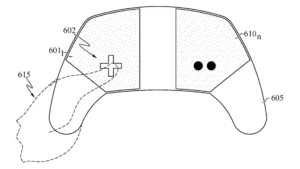Prithwiraj, originally from Singur near Kolkata, grew up surrounded by stories of art and culture thanks to his father, a Bengali literature professor and folk researcher. This early exposure inspired him to explore traditional Indian crafts. For his final-year project, he chose to study the **Channapatna craft**, Karnataka’s age-old wooden toy-making tradition, known for its distinctive lacquered wooden products. His innovation recently earned him an international design patent, marking a significant achievement in eco-conscious fashion design.
Over several weeks, Prithwiraj worked closely with Channapatna artisans. He learned their techniques, materials, and the cultural significance of their craft. Drawing from this experience, he designed the watch’s dial using lacquered wood colored with natural dyes sourced from the region, including the famous red color extracted from local soil. This authentic touch preserves the cultural legacy while giving the watch a warm, traditional appeal.
The watch case is crafted from recycled aluminum, sourced from discarded automobile engine parts and machinery. This sustainable choice reduces industrial waste and lowers the environmental footprint of the product. Olavu’s modular design allows users to swap wooden dials easily. This feature promotes personalization and prolongs the product’s life, contrasting with the disposable nature of many fashion accessories today.
Functionality is also a priority. The watch is water-resistant up to 200 meters (10-bar rating), thanks to the lacquer finish that prevents the wood from swelling or warping due to moisture. The precision of the watch is maintained with an accuracy of up to 0.5 mm, combining modern engineering with traditional craftsmanship.
The name “Olavu” means “love and affection” in Kannada, reflecting the emotional connection Prithwiraj wants to foster between the wearer and the watch. The international design patent recognizes the innovation and cultural significance of this creation, emphasizing how heritage and sustainability can coexist in modern design.
Prithwiraj’s work highlights the potential of young Indian designers to reshape fashion by integrating indigenous knowledge with contemporary needs. Olavu stands as a symbol of eco-friendly innovation rooted in tradition.
For more information about **Channapatna craft**, visit the [Karnataka Handicrafts Development Corporation](https://khandicrafts.karnataka.gov.in/).
To explore more on sustainable fashion and accessories, check out the [Sustainable Fashion Guide](https://www.sustainablefashionguide.org/).




